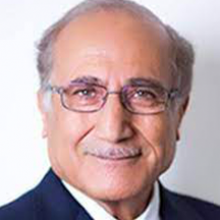You are here
Jordan and Korea
Nov 02,2015 - Last updated at Nov 02,2015
Prime Minister Abdullah Ensour praised his government’s economic performance at a press conference which he held on October 31.
Ensour said that the budget and the Jordanian dinar were holding despite adverse regional conditions. Ensour also cited the decline in the prices of imported oil and oil derivatives as factors that have cushioned these improvements.
The prime minister is right. But what about the rate of growth decreasing in the first half to 2 per cent, and the ailing sectors, such as trade, manufacturing, etc?
Imports witnessed a decrease and so did exports.
The strength of the Jordanian dinar is as much a burden as a credit. Yet, we have to concur with Ensour that the economy is doing well against the odds, and thanks to the world community, we are doing relatively well.
I have just returned from a trip to the Republic of Korea. I was intrigued and proud of the excellent impression His Majesty King Abdullah’s visit had left on the Korean officials and thinkers I met.
Korea is a very good country to do business with. Its GDP in 2014 was $1.7 trillion. In nominal terms, it is the 11th ranking economy, and in purchasing power parity terms it is the 13th. Its exports exceeded $630 billion last year. The average per capita income is about $35,000, or roughly seven times that of the average Jordanian income.
Koreans are very serious and meticulous.
When I visited their country for the first time in 1980 as minister of supply, the country was struggling for an elbow room in the world markets.
Most of its industries were consumer goods of low value-added capacity. Now they depend on electronics, IT, telecommunications, permanent consumer goods, ships, automobiles and furniture among other exportable items.
Companies such as Hyundai, Samsung, LG, KIA, are among the top in the world.
Their success has not come easy. In a series of five-year plans, starting in the 1960s, they managed to effect a major transformation in their productive sectors.
Agriculture, which now uses intensive farming techniques, is only 2.6 per cent of the GDP; manufacturing is about 40 per cent and services constitute 57.4 per cent.
This is a balanced and sustainable economy.
Now that Korea is poised to start a new phase, moving to the list of the top 10 economies, Jordan stands to benefit from partnering with them.
They are willing to invest about a billion dollars a year in Jordan for a long period of time. The question now is in what?
The Jordanian prime minister and all of us with him should stop expecting other countries to extend unrequited aid to us, especially for budget support.
Our success should focus on building Jordan’s production capacity in exports and in services.
Korea can be a very good partner and an effective role model.
Since the prime minister, and rightly so, had shifted his focus to investment, let us begin by identifying the investment opportunities and by curbing imports. These two indicators have gone to critical levels in Jordan.
This is the best way right now to move the economy to where we all wish it to be.
Korea will hopefully begin by helping Jordan build the Red-Dead canal.
The writer, a former Royal Court chief and deputy prime minister, is a member of the Senate. He contributed this article to The Jordan Times.













